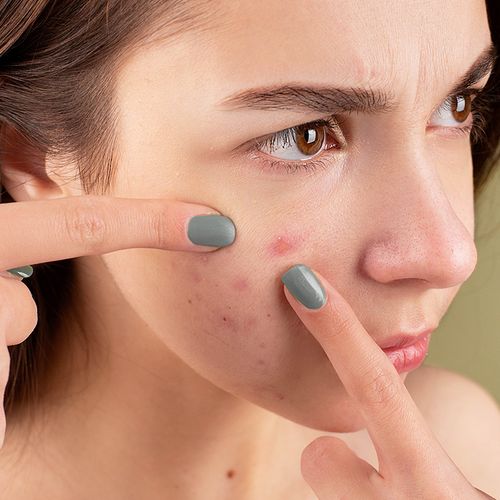New research appears to refute well-publicized reports linking the prescription acne drug Accutane to depression and suicide among teens. On the contrary, researchers say, Accutane may help reduce depression among young users.
The Study
Lead researcher Dr. Elaine Siegfried, a dermatologist at Saint Louis University Health Sciences Center looked at mood changes in adolescents and young adults who had severe acne. Researchers assigned 132 teenagers between ages 12 and 19 to receive treatment with either Accutane (isotretinoin) or more conservative therapy, which included antibiotics and skin creams.
"We wanted to provide some counter-evidence to the anecdotal suggestion that Accutane causes depression and can prompt suicide," says Siegfried.
"We found that there were no mood changes, with the exception of some mild mood improvement," she reports.
Depression was measured by a test called the Center for Epidemiological Studies Depression Scale. On that scale, depression is indicated by a score of more than 16 points.
At the start of the study, just over 14% of the people receiving Accutane and 19% in the conservative therapy group had scores of 17 or higher. Four months later, a little more than 8% of the Accutane users and 15% receiving conservative therapy scored in the depression range. The researchers suggest that the patients' moods may have improved as Accutane helped their acne clear up.
Rates of new cases of depression during the four-month study were similar in both groups.
The Reaction
Siegfried says the findings "echo the perception of most dermatologists after treating thousands of patients."
"My experience is more in line with this article than with other reports," says Dr. Marsha Gordon, an associate clinical professor of dermatology at Mount Sinai School of Medicine in New York City. "I think the majority of my patients report decreased depressive symptoms and decreased anxiety once their faces are clear," Gordon says, who, like many dermatologists, requires patients prescribed Accutane to sign an exhaustive consent form.
"Included in my informed consent (form), I tell them of the reports of depression and suicide. If there is a personal or family history of depression and suicide, I discourage the use of Accutane," she says. In addition, Gordon said she carefully monitors her patients on Accutane.
Shelley Rosenstock, executive director of public affairs at Hoffmann-La Roche Inc., the makers of Accutane, says these latest findings are in keeping with what they already know about the medication. "No studies have found an association between Accutane and psychiatric events," she says.
History Of Concern
Accutane has been under scrutiny since it first reached the market in 1982. It is known to cause birth defects when taken by pregnant women. Also, there have been allegations that Ac cutane can cause psychiatric problems, including depression and suicidal thoughts and actions.
One explanation for the theory that Accutane causes depression is that it is usually prescribed to teens a population most likely) to have new-onset depression," says Siegfried.
While Accutane is highly effective at clearing acne, its side effects should not be minimized. "If you are a young female and you get pregnant while you're taking Accutane, there is a high chance that your baby is going to have significant birth defects," says Siegfried.
Natural Acne Remedies
Oregon grape root fights bacteria and inflammation. It can be applied topically or taken as a tincture. Echinacea can stimulate healing when taken internally and kill bacteria when used externally. Tea tree oil is a topical anti-inflammatory and antimicrobial that can reduce the number of pimples-but some people are allergic to it. Oregano oil is a strong antimicrobial that can be used topically, but it has a strong smell.
Best: Use these remedies under the supervision of an experienced practitioner.
